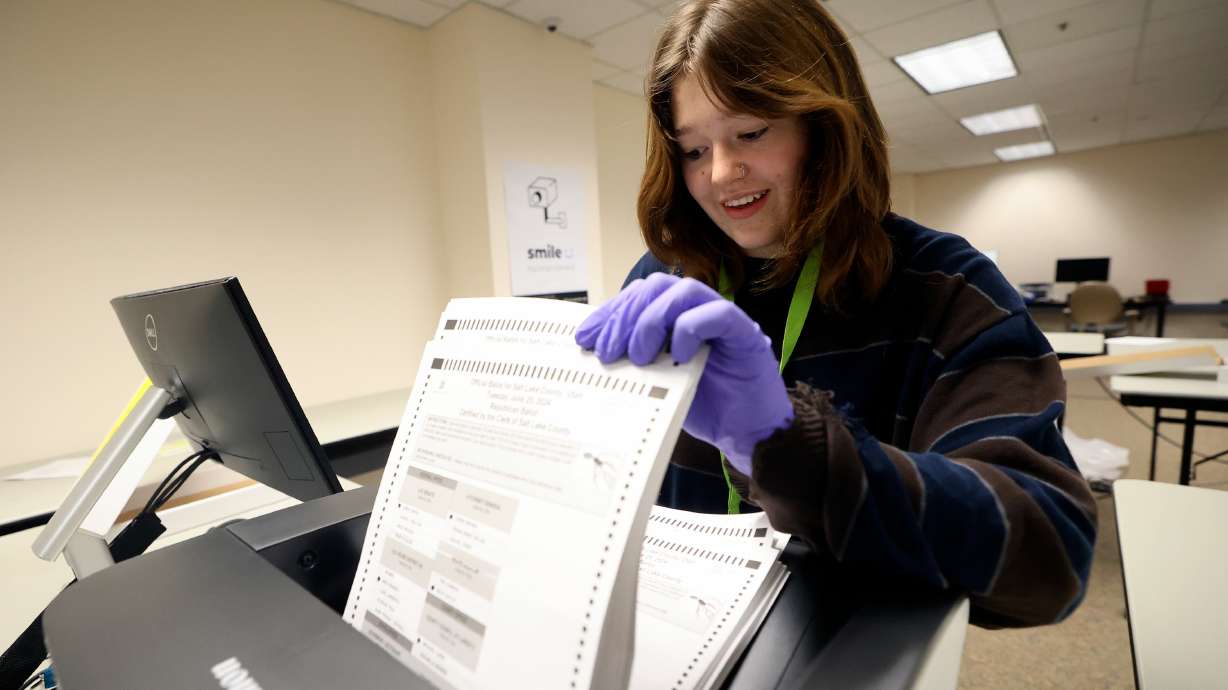Estimated read time: 2-3 minutes
This archived news story is available only for your personal, non-commercial use. Information in the story may be outdated or superseded by additional information. Reading or replaying the story in its archived form does not constitute a republication of the story.
SALT LAKE CITY — The U.S. is facing a shortage of poll workers with fewer than 100 days before the November general election, according to the Election Assistance Commission.
The small, bipartisan federal agency, which was created in 2002 and is tasked with supporting local election officials across the country, is hoping to turn that around and designated Thursday as National Poll Worker Recruitment Day to drive interest from volunteers.
Commission chairman Ben Hovland told KSL.com Wednesday that American elections are special because of the role community members and average citizens play in administering and counting the vote.
"A lot of people didn't know that this was a way they could serve their communities," he said. "Frankly, a lot of people may not realize that the people at their polling place are essentially neighbors or people from their community who technically get paid but basically are volunteers who are just there supporting our democracy."
The commission conducts a regular survey into voting across the country and found, in 2022, 54% of jurisdictions have faced difficulties in recruiting temporary poll workers. Hovland said many of those struggles persist, though they vary significantly in different parts of the country.
He said the agency also advises on safety and security for local election officials, which he said has "been a very challenging environment in the last several years" as threats against election officials have escalated. Hovland applauded Weber County Clerk/Auditor Ricky Hatch for strengthening relationships between election workers and the county sheriff — a model he said has been promoted as an example to jurisdictions across the country.
Hatch, who was elected to his post in 2010 and serves on the board of advisers for the Election Assistance Commission, said he's always had a "great partnership" with the sheriff's office, and he convened a meeting with election workers and law enforcement from several neighboring counties in 2022 to build relationships and create plans for handling various situations.
"It was a great experience," he said, adding that the partnership led to interest from national groups seeking to improve election safety elsewhere.
While counties in Utah always need poll workers, Hatch said the state's vote-by-mail system has greatly reduced the need because it requires fewer people working at in-person polling places on Election Day. Still, he encouraged those interested to contact their county clerks or visit the commission's website as soon as possible to go through training in time for November.
"It's quite possible that many of the counties have already hired out there, and so there's not a need, but it never hurts to ask," he said. "And we love it when people call and express a desire to work because there's a lot of work. ... Anybody who's willing to step in and help participate in the election process, really this pillar of our republic, we just greatly appreciate it."










